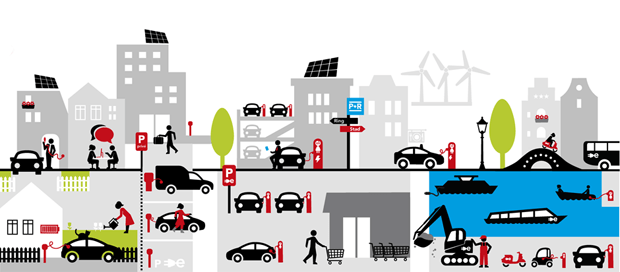Amsterdam rolls out electric charging strategy
POLIS member, Amsterdam has unveiled the municipality’s strategic plan for electric charging infrastructure.
As cities and regions across Europe strive to meet emissions reduction targets, electric vehicles (EVs)- for both passenger and freight transport- are increasingly recognised as key to attaining these objectives. However, to function effectively, EV fleets must be supported by ample and convenient charging infrastructure.
In response to current and forecasted EV traffic, The Municipality of Amsterdam has set out its ‘Strategic Plan for Charging Infrastructure 2020-2030’. The Dutch capital, has already made significant progress in EV infrastructure, already boasting 3,700 public and 4,100 private charging points; nevertheless, further work is required.
Aiming to expand its charging offering from 8,000 to 80,000 charging points, Amsterdam is aiming high. Simultaneously, the municipality also recognises the need for strategic deployment of EV charging, which takes into account the geography of EV usage, the sharing economy, use of public space, parking, and current urban mobility policy agendas.
As such, the roll-out adopts 5 core principles:
- Loading is done as much as possible on private and semi-public territory;
- Where necessary, Amsterdam will build public charging infrastructure throughout the district. Check out the charging points that Amsterdam now has on the map;
- The installation of public charging infrastructure is done strategically and data-driven;
- At strategic locations in the city, we facilitate the realization of fast charging points;
- Collaborate on a comprehensive network of hydrogen stations.
Read the full report here.

